Abstract
Auditory neglect was investigated in normal controls and in patients with a recent unilateral hemispheric lesion, by requiring them to detect the interruptions that occurred in one ear in a sound delivered through earphones either mono-aurally or binaurally. Control patients accurately detected interruptions. One left brain damaged (LBD) patient missed only once in the ipsilateral ear while seven of the 30 right brain damaged (RBD) patients missed more than one signal in the monoaural test and nine patients did the same in the binaural test. Omissions were always more marked in the left ear and in the binaural test with a significant ear by test interaction. The lesion of these patients was in the parietal lobe (five patients) and the thalamus (four patients). The relation of auditory neglect to auditory extinction was investigated and found to be equivocal, in that there were seven RBD patients who showed extinction, but not neglect and, more importantly, two patients who exhibited the opposite pattern, thus challenging the view that extinction is a minor form of neglect. Also visual and auditory neglect were not consistently correlated, the former being present in nine RBD patients without auditory neglect and the latter in two RBD patients without visual neglect. The finding that in some RBD patients with auditory neglect omissions also occurred, though with less frequency, in the right ear, points to a right hemisphere participation in the deployment of attention not only to the contralateral, but also to the ipsilateral space.
Full text
PDF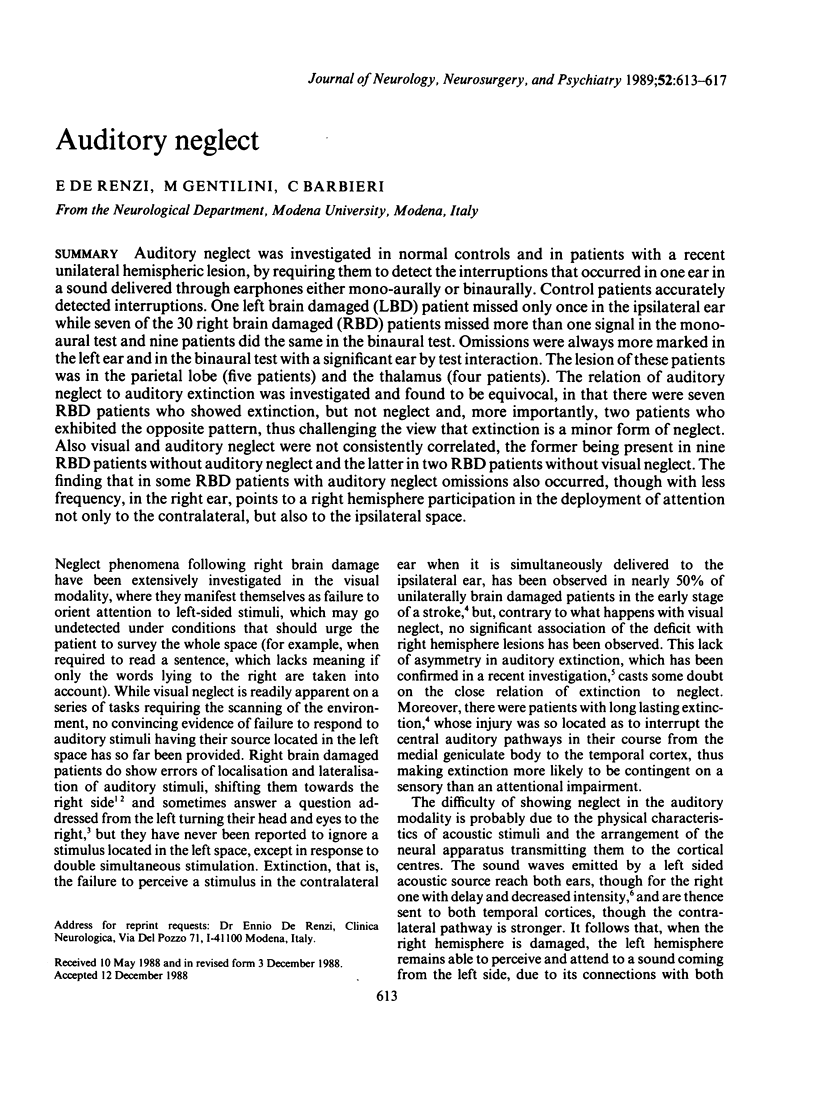
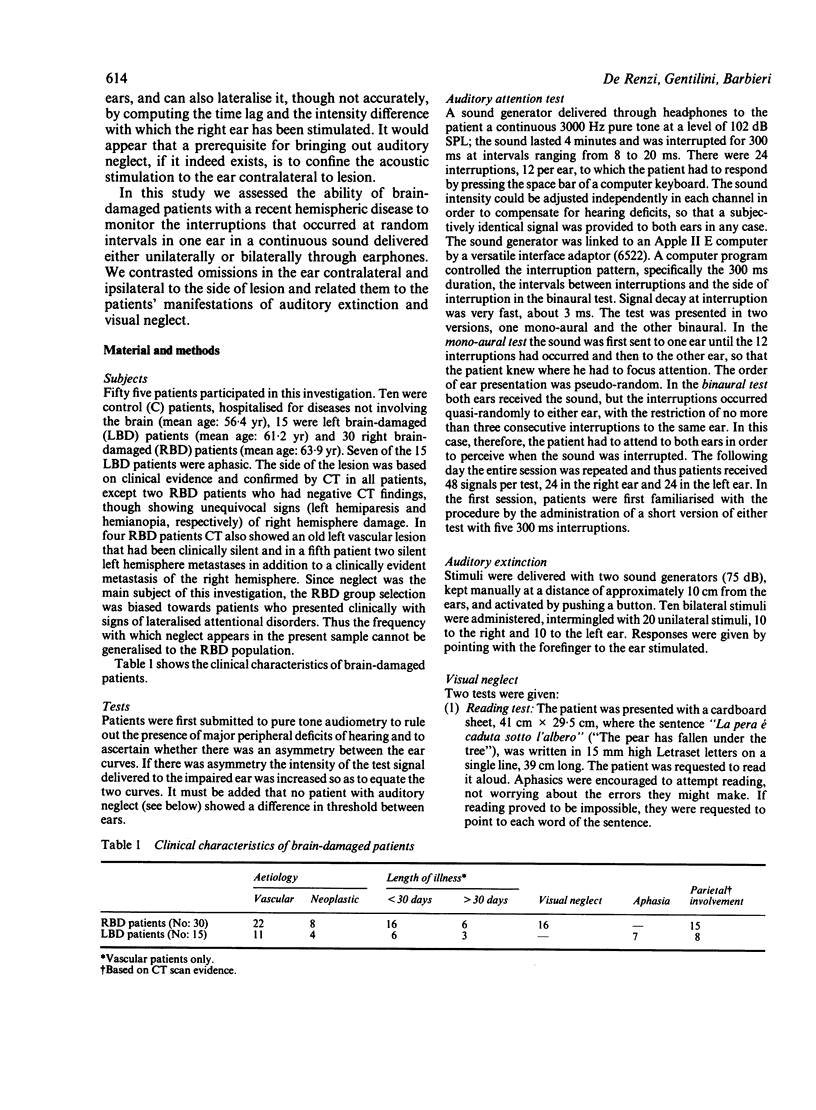
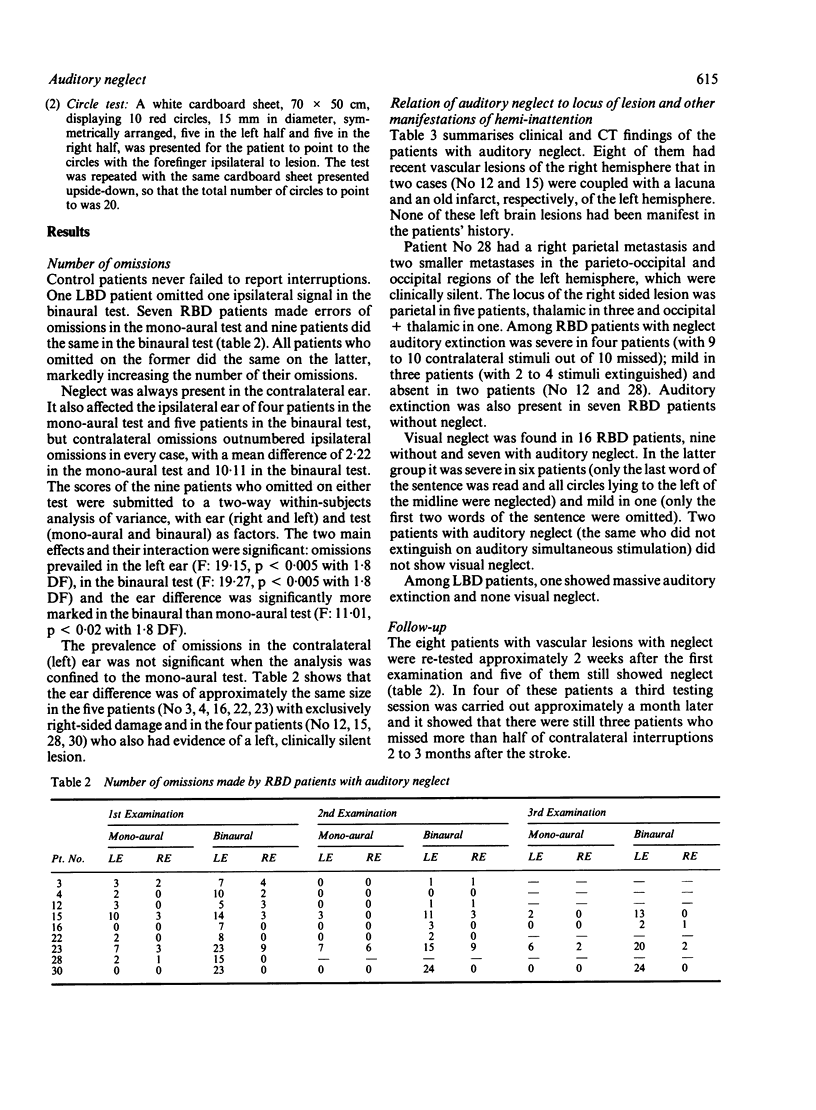
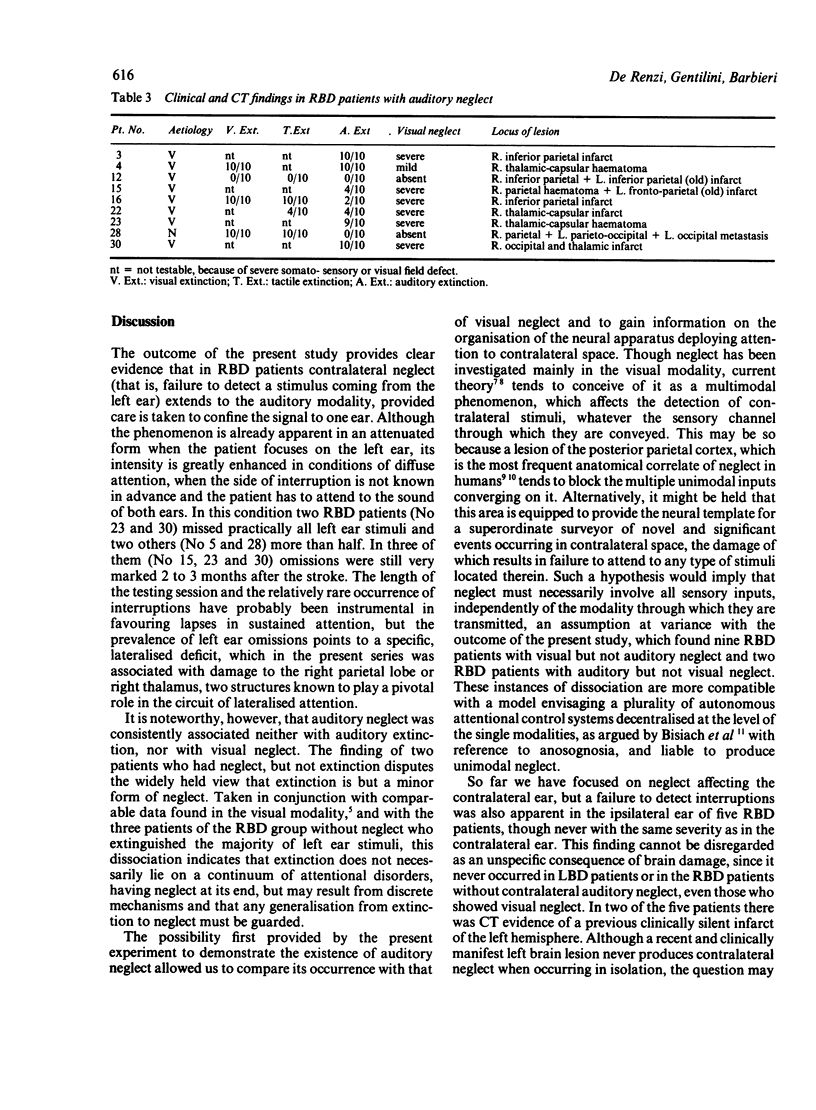
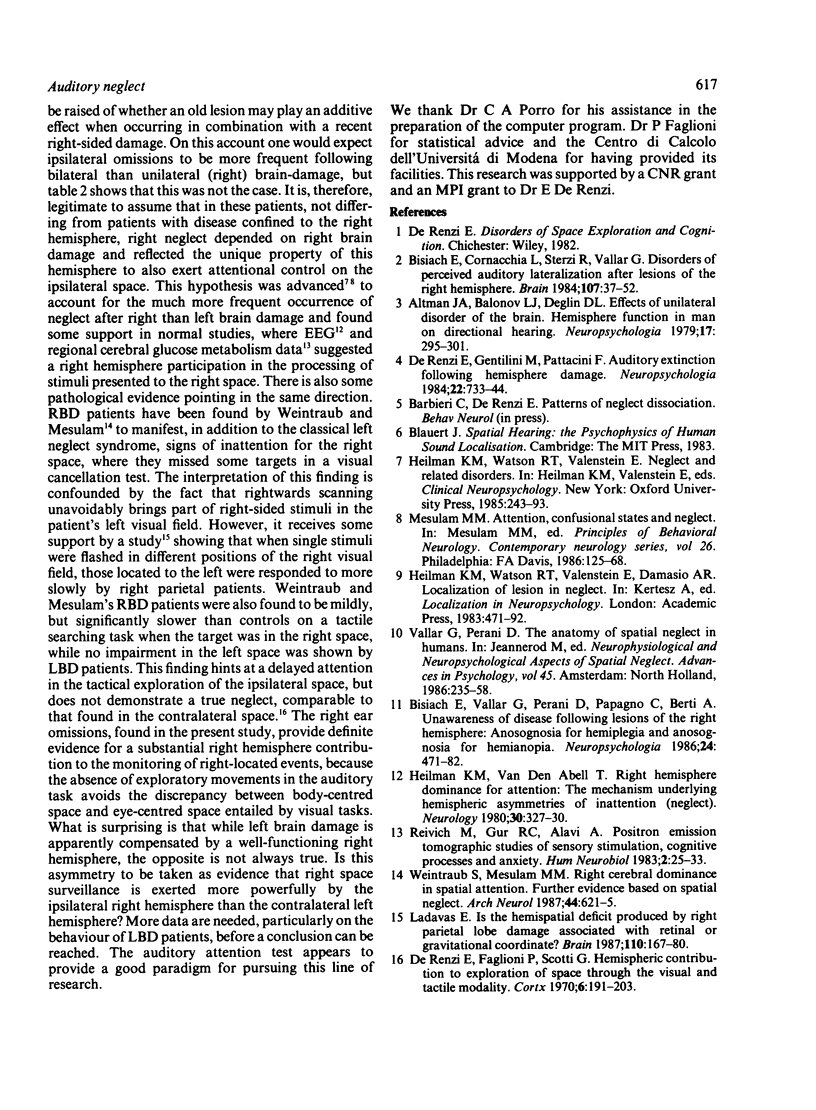
Selected References
These references are in PubMed. This may not be the complete list of references from this article.
- Altman J. A., Balonov L. J., Deglin V. L. Effects of unilateral disorder of the brain hemisphere function in man on directional hearing. Neuropsychologia. 1979;17(3-4):295–301. doi: 10.1016/0028-3932(79)90075-7. [DOI] [PubMed] [Google Scholar]
- Bisiach E., Cornacchia L., Sterzi R., Vallar G. Disorders of perceived auditory lateralization after lesions of the right hemisphere. Brain. 1984 Mar;107(Pt 1):37–52. doi: 10.1093/brain/107.1.37. [DOI] [PubMed] [Google Scholar]
- Bisiach E., Vallar G., Perani D., Papagno C., Berti A. Unawareness of disease following lesions of the right hemisphere: anosognosia for hemiplegia and anosognosia for hemianopia. Neuropsychologia. 1986;24(4):471–482. doi: 10.1016/0028-3932(86)90092-8. [DOI] [PubMed] [Google Scholar]
- De Renzi E., Faglioni P., Scotti G. Hemispheric contribution to exploration of space through the visual and tactile modality. Cortex. 1970 Jun;6(2):191–203. doi: 10.1016/s0010-9452(70)80027-2. [DOI] [PubMed] [Google Scholar]
- De Renzi E., Gentilini M., Pattacini F. Auditory extinction following hemisphere damage. Neuropsychologia. 1984;22(6):733–744. doi: 10.1016/0028-3932(84)90099-x. [DOI] [PubMed] [Google Scholar]
- Heilman K. M., Van Den Abell T. Right hemisphere dominance for attention: the mechanism underlying hemispheric asymmetries of inattention (neglect). Neurology. 1980 Mar;30(3):327–330. doi: 10.1212/wnl.30.3.327. [DOI] [PubMed] [Google Scholar]
- Ladavas E. Is the hemispatial deficit produced by right parietal lobe damage associated with retinal or gravitational coordinates? Brain. 1987 Feb;110(Pt 1):167–180. doi: 10.1093/brain/110.1.167. [DOI] [PubMed] [Google Scholar]
- Reivich M., Gur R., Alavi A. Positron emission tomographic studies of sensory stimuli, cognitive processes and anxiety. Hum Neurobiol. 1983;2(1):25–33. [PubMed] [Google Scholar]
- Weintraub S., Mesulam M. M. Right cerebral dominance in spatial attention. Further evidence based on ipsilateral neglect. Arch Neurol. 1987 Jun;44(6):621–625. doi: 10.1001/archneur.1987.00520180043014. [DOI] [PubMed] [Google Scholar]


